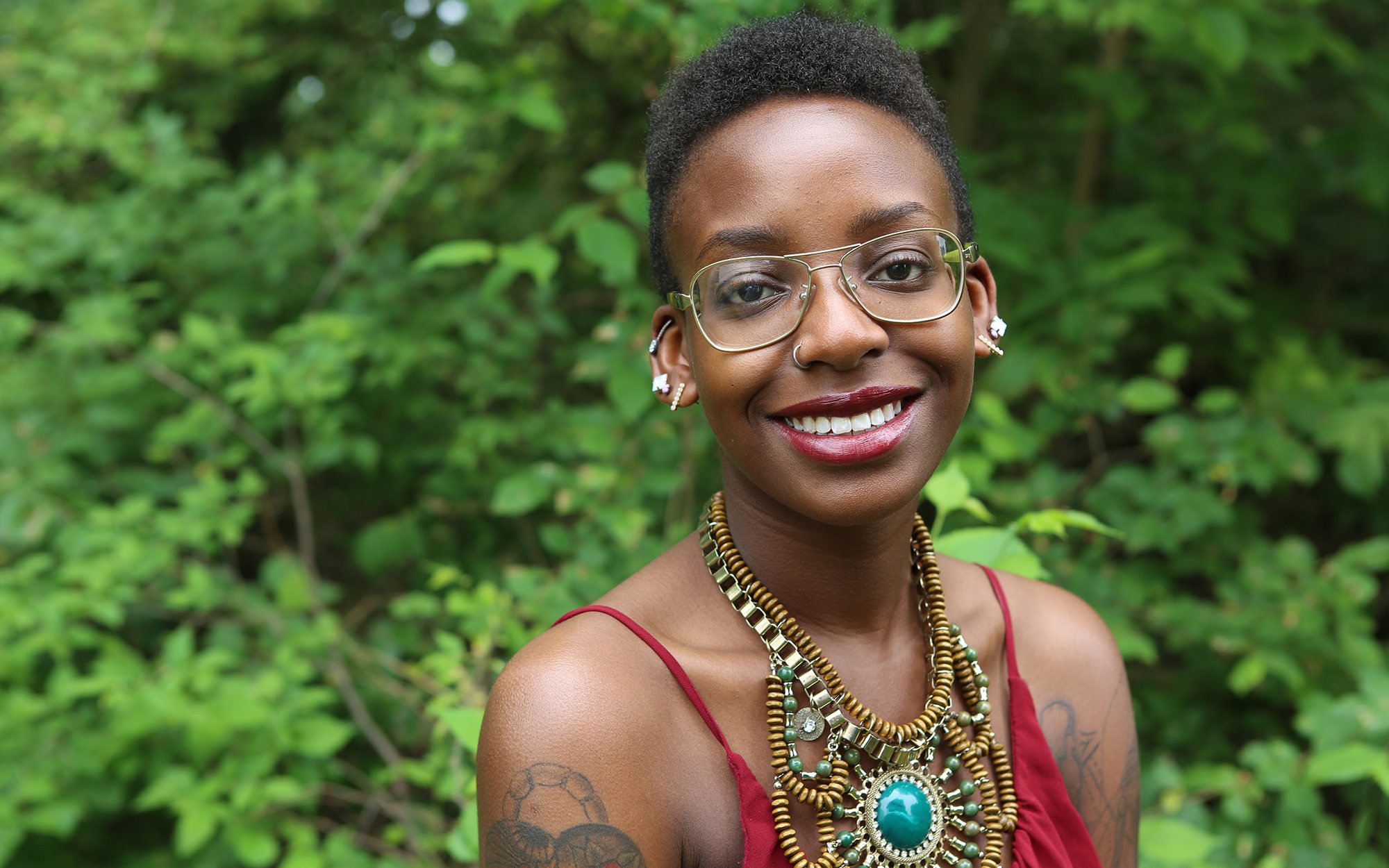Caged. That’s how I would describe my state of mind during my school years. I think the content of textbooks and lessons is to blame. From my elementary school, I remember textbooks and lectures geared toward the achievement of people who looked nothing like me. I learned about the Boston Tea Party, World War I and World War II. Teachings on African-American history were greatly reduced to only learning about slavery in the South, lynching and oppression.
In my high school, Perry Traditional Academy, I realized what had been missing from my textbooks was the history of my culture, knowledge and authenticity. A “successful” person was usually white, suggesting that, “This is what you have to look like in order to be successful.” If African Americans were in the curriculum at all, they usually disappeared as soon as Black History Month was over.
Schools have created a “one size fits all” curriculum, just like standardized testing, ultimately designed for students to study and forget the material, or fail altogether in a “white mainstream” division.
In a predominantly African-American high school, you would think teachers and the school district would take pride in preserving their culture. It’s the complete opposite. Take my experience. I only had a few African-American teachers throughout school; the rest were white teachers who mainly focused on their own culture and reaffirmed their own history instead of uplifting African-American students and encouraging them to fulfill their own dreams.
The only course throughout Perry Traditional Academy that truly focused on African-American culture was at the time a newly introduced course called African American Studies. It was refreshing to finally see posters, people, textbooks with people who looked like me. Yet it was disappointing to see the class still focused on what I considered to be “mainstream,” discussions about slavery and discrimination, the lessons I had already learned in elementary school.
Nothing on culture or literature. It wasn’t until college that I indulged myself in black literature and read the “Autobiography Of Malcolm X,” Assata Shakur’s biography and learned about the Black Panther Movement, The Freedom Riders and other essential gems of history that hadn’t been mentioned due to school regulations and the standard curriculum.
Minorities and educators need to recognize and embrace a nuanced approach to educating the current generation, not just for their sake but for future generations to come.
It’s amazing how aloof our educators could be to the diversity and nuance in their own classroom.
In fairness though, there are educators who are trying to address the issue of diversity and inclusion in the classroom. An initiative called “Justice Works,” for example, emerged at the Africana Studies program at the University of Pittsburgh. “Justice Works” uses a “CAN” formula:
C, which refers to curricular enhancements, focuses on how to enhance curricular for students in math and science in school (STEM fields).
A, which refers to axiological enhancements, addresses the core values to become successful in the classroom and life in general, including self-esteem, confidence and interpersonal skills.
N, which stands for normative enhancements, promotes the importance of community, friendship and family ties.
“Justice Works” has become a part of schools and churches in Pittsburgh to specifically “close and reverse disparities linked to race, class and gender.” The CAN framework it uses was adopted by other programs across the region.
One of them is “RAMP,” which stands for Raising Achievement in Monroeville/Pitcairn, middle-income Pittsburgh suburbs. The program focuses on bringing educational leaders and parents together to diminish the achievement gap. “RAMP” does things like recognize students who read 25 books or more.
The “CAN” formula can be implemented into public schools by focusing on creating engaging and meaningful curriculums to prepare students for the workforce and higher education. Not only does the “CAN” focuses on an educational asset, but it addresses the importance of developing relationships, self-esteem and the importance of a community to grow in.
Broadly, though, not all educators acknowledge the outside hardships students face outside the classroom, like housing discrimination, obtaining scholarships or financial aid as a minority. All of these things matter and a more holistic approach is needed. Diversifying the classroom doesn’t mean being able to rap the latest lyrics, dance to the latest songs or exploiting black students for Facebook likes. Knowledge can prepare students for facing and overcoming difficult situations. Minorities and educators need to recognize and embrace a nuanced approach to educating the current generation, not just for their sake but for future generations to come.
Shaunese Johnson is a social media editor at online magazine My Black Matters, she graduated from La Roche College in 2016 with a bachelor’s degree in Child/Family Studies and Communications. She is also a childhood educator and a contributing blogger for CitrineMagazine.com, BlackToLive.org, JetMag.com, Afropunk.com, and TheNaunces.com. Her writing focuses on social justice issues, intersectional feminism, education, sexuality, equality, relationships, self-love and mental health.
